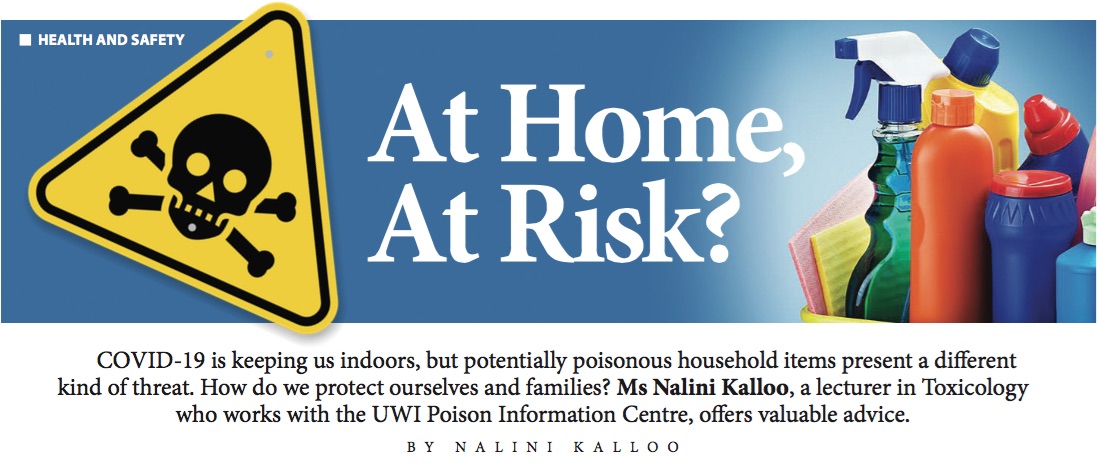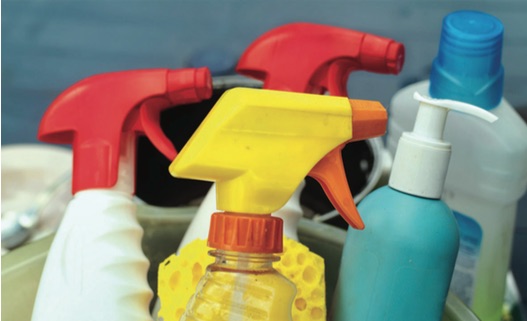
All substances are poison, all that matters is the dose, said Swiss physician Paracelsus (1493-1541). If you were to look around your home right now, are substances such as disinfectants and other household chemicals, which can be potential dangers, safely stored or out of the reach of children and pets?
Between 2013 and 2018, there were close to 1,000 hospitalisations caused by accidental exposure to poisonous substances across Trinidad and Tobago. The most vulnerable age group were the pediatric population (0 to 9 years old), contributing to approximately 60 percent of these hospitalisations. Adults (30 to 60 years old) made up 20 percent. The main poisonous substances implicated in these accidental exposures were household chemicals/solvents, medicines, and pesticides.

The COVID-19 pandemic has required people to spend much more time at home, especially children and adolescents who have been shifted to online learning since March 2020. In some instances, children may be left with minimal supervision and more time to explore their home surroundings.
An obvious source of poisonous substances in the home are the increased amounts of disinfectants and sanitisers now being used for surfaces and hands. In the first year of the pandemic we saw the use of methanol in hand sanitisers. The US Food and Drug Administration (FDA) has warned against the use of insufficient levels of ethanol or isopropyl alcohol and other ineffective ingredients in hand sanitisers, as well as packaging of these items in food and beverage containers. In T&T, the Ministry of Health has ensured that local manufacturers are compliant with set guidelines, and declared that approval by the Chemistry, Food and Drug Division must be granted before locally manufactured hand sanitisers can be sold.
In the same 2013 to 2018 period, there were over 1200 hospitalisations due to intentional self-harm by poisoning. Medications and various household and agricultural chemicals were used by adolescents (10 to 29 years old) and adults to harm themselves. In the current climate where mental health is also important, it may help if access to such substances is restricted.

A newer source of accidental exposures are online challenges on social media. These are often done under the guise of “getting high” without using illicit drugs, giving rise to things such as Benadryl, nutmeg and pass-out challenges. While these may seem like nonsense to responsible adults, to impressionable adolescents, these video-recorded challenges seem like their shot to fame. The onus is on parents and guardians to monitor the cyberspace that our children and adolescents occupy. So, let us take a good look around the home and see where improvements can be made.
For more information, visit The UWI St Augustine Poison Information Centre at https://sta.uwi.edu/pic/index.asp.